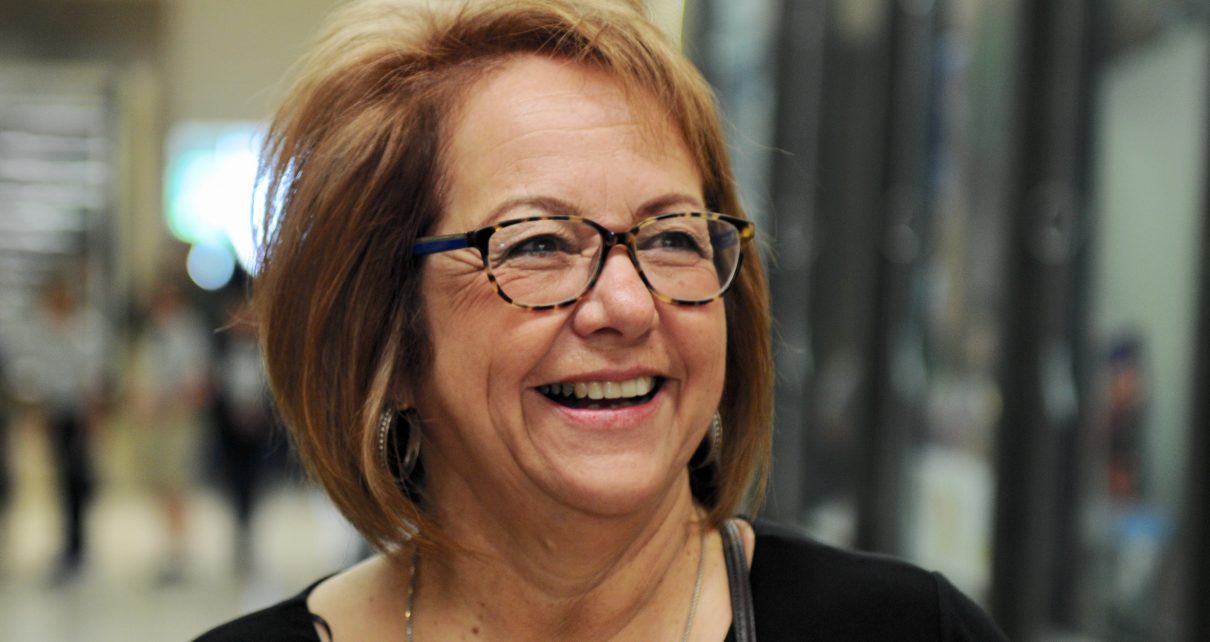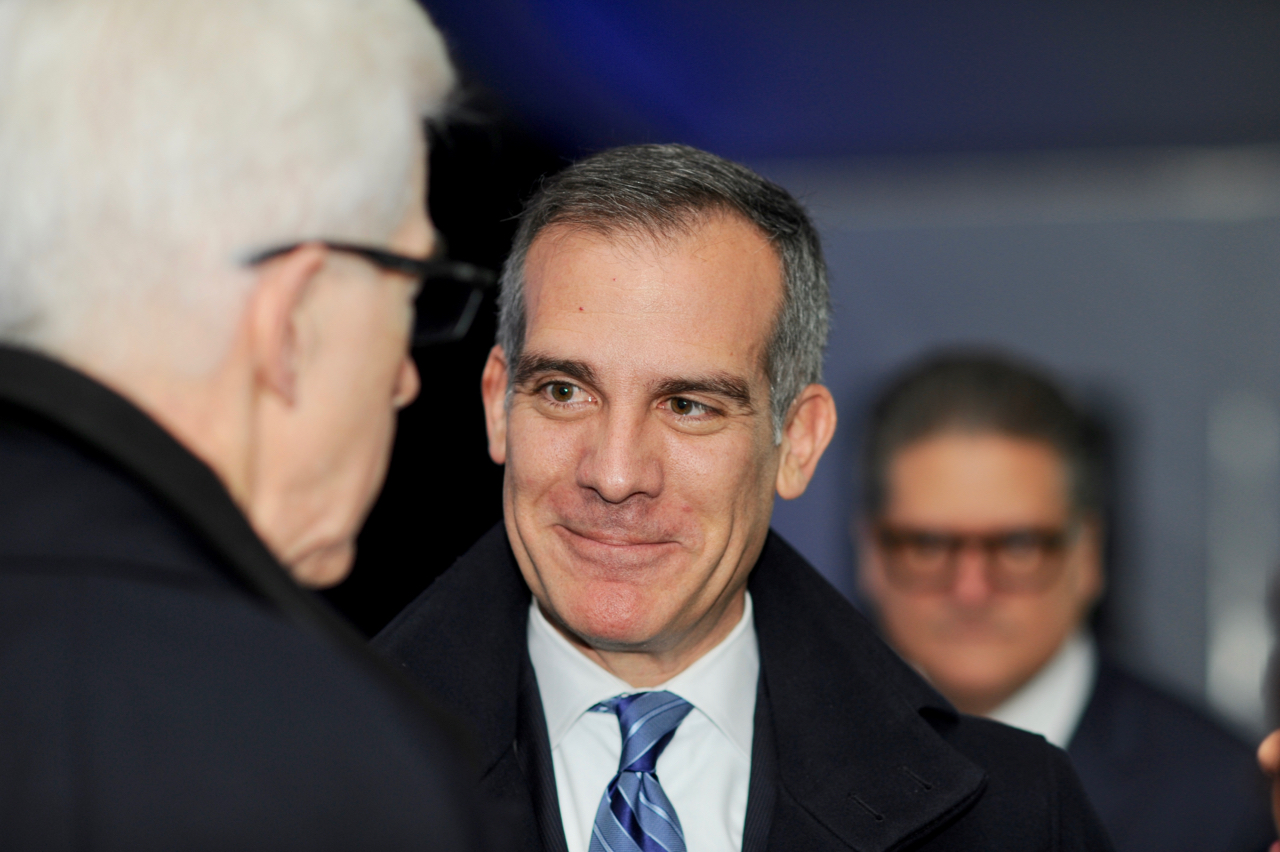
Sen. Maria Elena Durazo. (Photo: Kevin Sanders for California Globe)
$25-Per-Hour Statewide Health Care Worker Minimum Wage Bill To Be Introduced Wednesday
New minimum wage would cover both health care workers, ancillary staff
By Evan Symon, February 14, 2023 5:34 pm
A bill that would mandate a $25 an hour minimum wage for health care workers in California is set to be introduced into the Senate on Wednesday.
The as-of-yet unnumbered bill, which will be authored by former trade union official, now Senator Maria Elena Durazo (D-Los Angeles), would include regular health care workers such as doctors and nurses, as well as other ancillary hospital staff such as cafeteria workers, security guards, laundry workers, technicians, and others employed by health care locations. The bill would also not just affect hospitals, but also places such as dialysis clinics and nursing homes.
If passed, around 1.5 million workers across the state would see a raise to $25 an hour come into place beginning in January 2024.
Senator Durazo introduced the bill and said that healthcare workers in most places remain underpaid, with many now struggling with inflation.
“How do people survive?” said Durazo on Tuesday. “They can’t be on the edge of becoming homeless. That’s what we’re facing.”
The Service Employees International Union-United Healthcare Workers West (SEIU-UHW), which has backed similar measures and legislation in the past, will also be backing the bill for both the large raises and to help keep current health care staff in place after many left due to stress and burnout issues during the COVID-19 pandemic.
“We have a workforce that has just been through the wringer in the last three years,” explained SEIU-HW President Dave Regan. “And lots of health care workers decided, you know, this is just too difficult. It’s too exhausting. It’s too dangerous.”
Supporters have also noted that some areas have already seen $25 an hour minimum wage for all health care workers in private hospitals and health care facilities be installed, including in Los Angeles and Inglewood, and that the same model could easily spread statewide.
However, the bill has also already garnered much opposition. Hospitals, clinics, dialysis centers, and other health care companies and organizations are expected to come out in opposition to the bill. Both Republicans and Democrats also expected to challenge the bill, especially those in districts with a large health care presence.
Last year, unions were outspent by hospital systems over health care worker wage increase ballot initiatives, $11 million to $12 million. The higher minimum wage, it was argued, would significantly increase costs and could lead to reduced staff and other reductions as a result. Meanwhile the dialysis industry has paid more than $300 million since 2017 to fight three union-backed ballot initiatives that would increase staff and put their thin profit margins at risk as a result. While all three measures were soundly defeated by voters, the incoming bill is already causing similar stress to the industry.
Other attempts at $25 an hour minimum wage hikes have also failed in the past. Nursing home wage raises have been halted at many homes due to California not reimbursing them enough for each Medi-Cal patient. A statewide $25 an hour wage increase was denied last year due to funds being tied with earthquake upgrades in hospitals. Unions backed down last year for the latter, opting instead for safety.
Health Care Minimum Wage Bill will face numerous challenges
For hospitals and other health care facilities, the incoming bill is seen as yet another wage increase attempt that would put many jobs at risk.
“Here we go again,” former health care company executive and current health care issue advisor Lee Nichols told the Globe on Tuesday. “Unions in California keep trying to set this $25 bar for healthcare workers, but they fail to see the big picture. Yes, employee retention is needed, but there are other ways to do that instead of a drastic pay increase.”
“Also, the value of a dollar varies wildly across the state. In cities, you can argue for wage increases because of the higher costs, but outside of them you have a cheaper cost of living, as well as hospitals and nursing homes with much lower budgets due to costs not being as high. A $25 minimum wage there would severely hurt these hospitals. Well, it would hurt them everywhere, but especially outside of cities.”
“There will be a lot of people coming out against this bill. If people in favor of this bill truly cared about employee retention, there would be a slight increase, maybe $17 or $18 an hour to start, and then an increase of perks, flexible scheduling, and other things they want. Honestly, they should not be asking the unions for what they want, but asking employees individually, even if it is just through an anonymous means. We’ve had clinics do this before and a lot of problems were solved pretty fast without getting the state or the union involved. But instead they are choosing a brash bill for $25 an hour. I think they’ll be surprised at just how many people are going to be coming out against it.”
The bill is expected to be introduced on Wednesday.
- ‘Fix Prop 47’ Initiative Receives Over 900,000 Signatures – Qualifies for November Ballot - April 18, 2024
- Google Fires 28 for Anti-Israel Sit-in at Work - April 18, 2024
- California Retains Title As World’s 5th Largest Economy - April 18, 2024





$25 an hour lunch ladies.
“The as-of-yet unnumbered bill, which will be authored by former trade union official, now Senator Maria Elena Durazo (D-Los Angeles), would include regular health care workers such as doctors and nurses, as well as other ancillary hospital staff such as cafeteria workers…”
The cafeteria will be replaced with vending machines. Meals for patients will be completely outsourced. Lots of jobs will go bye bye.
You’re right…a lot of jobs will be outsourced: janitorial crews, maintenance people, the lot. Why hire your own when you can contract it out.
Another Democrat solution to a problem created by Democrats!!
Raising the minimum wage will only increase the cost of living while reducing jobs? Democrat Senator Maria Elena Durazo is a pampered lawyer who has never created or run a business? Maybe she’s just ignorant of economics, but as a former trade union official, maybe she’s getting a payoff from the SEIU-UHW to push this legislation?
Why don’t we just pass a law that everyone in the USA makes at least $500 an hour. Then we can immediately end poverty, everyone can afford housing, food and a high standard of living! I mean, if we are going to go down the road to fantasyland let’s go ALL the way!!!
SIGH!